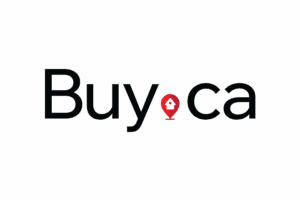Applying for a mortgage with investment income
When it comes to qualifying for your mortgage, income is the name of the game. The number one thing lenders look at when evaluating borrowers is their income and level of debt. If you’re in a position where you’re relying primarily on investment income but have enough assets to fund your mortgage payments, you may find it difficult to qualify for a traditional mortgage.
Recommended reading: How to get a mortgage with an alternative form of income.
With that being said, some lenders offer what’s known as a “net worth mortgage” in order to qualify borrowers in that specific situation.
Let’s talk about qualifying for a mortgage if your main source of income is your investment portfolio.
Key Takeaways
- While it is less common than a traditional mortgage qualification some lenders offer a net worth program for borrowers to qualify based on liquid assets
- Lenders have strict requirements for mortgages based on a portfolio of assets such as a minimum amount of liquid assets needed to qualify
- The best way to find a mortgage for your situation is to work with a mortgage advisor and explore various lenders
What assets are considered in a net worth mortgage?
When lenders evaluate a borrower’s assets in order to qualify them for a mortgage, they are looking for liquid assets that can be quickly sold in the event the borrower can’t pay their monthly mortgage payments. Liquid assets include various investment vehicles such as GICs, stocks, bonds, shares of mutual funds and ETFs, and cash.
Additionally, consistent income from investments can be considered when qualifying a borrower for a mortgage. If you have a rental property earning $10,000 per year after expenses, that will be factored into your mortgage qualification, as well as consistent income demonstrated over multiple years from something like dividends or bond yields.
Scotiabank is one such lender which offers a “net worth program”, which allows borrowers to qualify for a mortgage based on their verifiable liquid assets.
Who qualifies for a net worth mortgage?
Each lender will have their own unique requirements for qualifying someone for a mortgage based on an investment portfolio. As lenders primarily qualify based on traditional work income, their requirements are fairly standard across the industry. Not so for a mortgage based on your net worth or investment income, which is why it’s a great idea to work with a mortgage advisor to help you find the mortgage that fits your needs.
If you’re in doubt about whether you could qualify for a mortgage based on your investment portfolio, your best bet is to work with one of our mortgage advisors who will help you with your mortgage plan and find the right lender for you.
An example of qualification requirements for a net worth mortgage
With that being said let’s look at an example of the qualifying requirements for a net worth mortgage, as taken from Scotiabank’s current net worth program.
Anecdotally, Scotiabank requires a minimum of $250,000 in liquid assets to qualify a borrower for a net worth mortgage. For every $1 in liquid assets not including the down payment, a client may be able to qualify for $1 in financing, above what they traditionally qualify for.
For example, if you have $20,000 per year in income which could qualify you for $100,000 of borrowing, have saved $100,000 for a down payment, and have an additional $500,000 in liquid assets such as shares of an ETF, you may be able to qualify for a mortgage of up to $600,000.
If you’re someone who relies on investment income to pay your expenses, you’re probably well aware that your paper income doesn’t portray the whole picture. You may have $40,000 in regular investment income to show which would qualify you for a mortgage of around $200,000, but have far more than that in liquid assets. Working with a lender that offers financing options based on net worth will help you qualify for a much larger mortgage.
Which lenders offer a net worth mortgage program?
The number of lenders which are willing to work with borrowers in non- traditional circumstances is increasing, but that doesn’t mean it’s the norm. As always, going with an alternative lender like a private mortgage provider or a B-lender is an option. Alternative lenders have much more flexible borrowing requirements at the expense of higher interest rates.
Recommended reading: What to expect when going with an alternative lender.
Among major lenders that currently offer mortgage options for individuals qualifying with an investment portfolio include Scotiabank with their net worth program, and TD with their high net worth program.
How to apply for a net worth mortgage.
As not every lender offers the ability to qualify based on liquid assets, your best bet to explore mortgage options is to work with a mortgage advisor who will help you to shop mortgage offers and find the right lender for you. At Perch we’ll help you connect with a mortgage lender that offers a mortgage suitable for your situation. In cases where traditional lenders aren’t willing to approve a net worth mortgage, we can also explore alternative lenders, and private lending options on a temporary basis to provide you a viable path to homeownership, which can later be refinanced to secure you the best terms.
If you’re an existing homeowner, sign-up to Perch and find out how much equity you have access to today. For those looking to buy, you can be pre-approved in as little as 20 minutes when you sign-up to Perch.
 Alex
Alex





